Our job isn’t about making friends, says ICC prosecutor pursuing Israel
Karim Khan knew when he announced he was seeking arrest warrants against leaders of Israel and Hamas that he was stepping into a political minefield. He insists he had no choice.
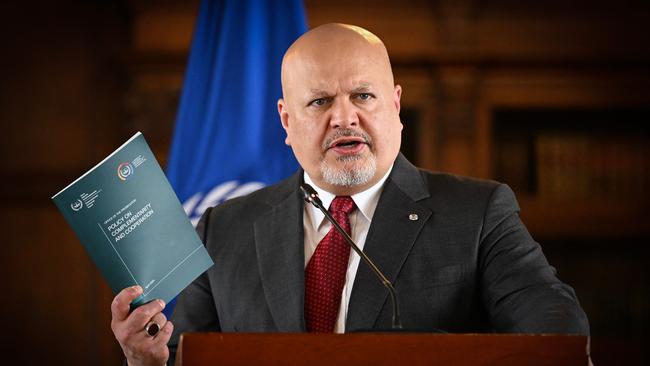
The British barrister Karim Khan knew when he announced he was seeking arrest warrants against leaders of Israel and Hamas that he was stepping into a political minefield.
But as chief prosecutor of the International Criminal Court (ICC) – as well as someone from a persecuted minority whose own parents were once attacked in a Yorkshire town hall - he insists he had no choice.
“What this comes down to is, ‘Do we want to live in a world where law is applied equally or one where we close our eyes and turn away because of our allegiances?’ ” he said. “Of course one is aware that Gaza is on the faultline of international relations but that cannot be an excuse not to try everywhere to put rights of victims first. Whether those are the rights of Jewish victims or Palestinians, whether Muslim, Christian or of no belief, we must have the same moral outrage, love, care and concern – the point is they are all human beings.”
Khan’s announcement on Monday accused Benjamin Netanyahu, Israel’s prime minister, and his defence minister Yoav Gallant, along with three Hamas leaders, of crimes against humanity. It was the first time a sitting western-backed leader had been targeted by the court and it prompted outrage. But in his first major interview since the announcement, Khan has hit back at critics, including Rishi Sunak, who called the decision “deeply unhelpful”, and President Biden, who called it “outrageous”.
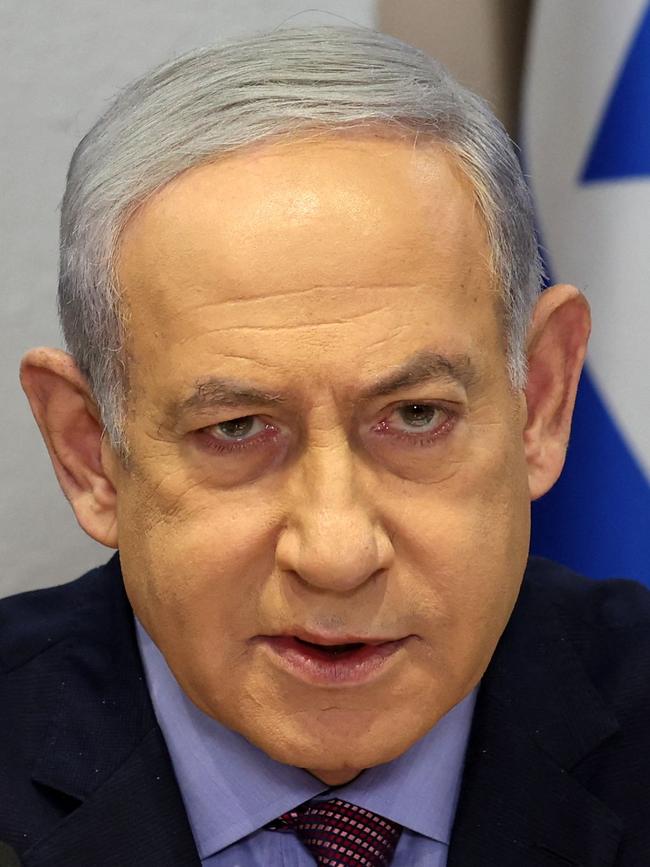
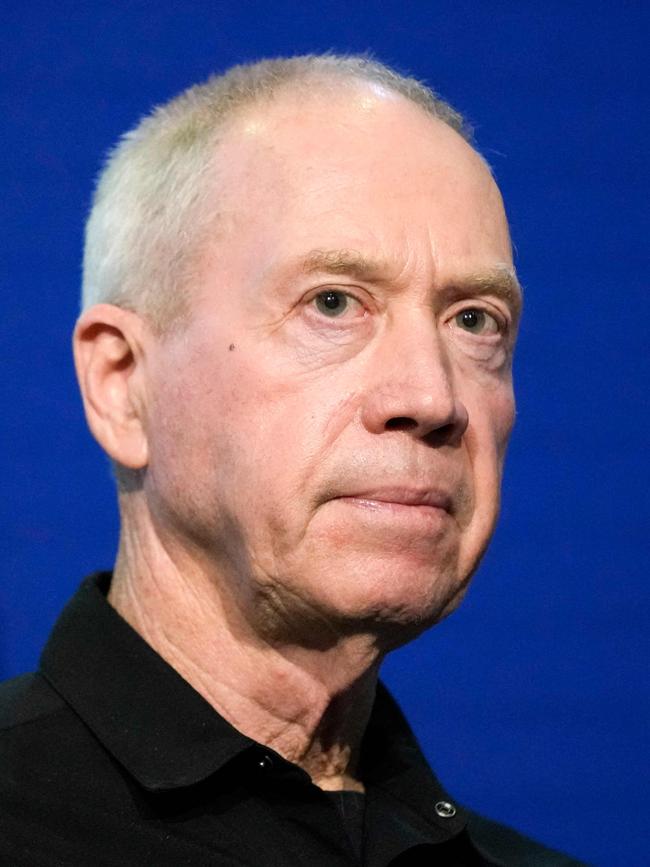
“Our job is not to make friends,” he shrugged. “It’s to do our job whether we are applauded or condemned. We have to underline the equal worth of every child, every woman, every civilian in a world that is increasingly polarised and if we don’t do that, what’s the point of us?”
The warrants are subject to approval by the ICC’s judges. If they are issued, they would immediately become a much more significant potential constraint on Israel’s leadership than Friday’s ruling by the International Court of Justice, (ICJ) in a case brought by South Africa, that ordered Israel to suspend its military campaign in Rafah. The ICJ has no means of enforcing its decision but if the ICC issues a warrant, all of the 124 countries that have signed up to the treaty that established the court, including Britain, would be duty-bound to arrest Netanyahu if he steps on their soil. The US is not a signatory - nor is Israel - but every member of the EU is, including close allies of Israel such as Germany. “If states don’t step up, it has massive implications,” Khan said. “The ICC is their child - I am just the nanny or hired help. They have a choice to look after this child or be responsible for its abandonment.”
Khan has made several visits to Israel to see the sites of the October 7 attack and meet relatives, which he says had a profound impact on him. In his pocket he carries a blue wristband printed with “Bring Them Home”, the slogan demanding the return of the Israeli hostages still being held in Gaza, with the silver dog-tag of Kfir Bibas, the red-headed baby snatched and subsequently killed in an airstrike. “This would break anyone’s heart,” he said. “Kfir was just nine months old. But there’s no monopoly on suffering. There are Palestinian babies dying and we cannot have double standards.”
He added: “Much more important than me or the ICC, the world is looking at this situation. In Latin America, Africa and Asia they are seeing this as a crystallising point. Are powerful states sincere when they say there’s a body of law or is this rules-based system all a nonsense, simply a tool of Nato and a post-colonial world, with no real intention of applying law equally?”
The charges against the three Hamas leaders – Yahya Sinwar, Mohammed Diab Ibrahim al-Masri (also known as Mohammed Deif), commander of the al-Qassam Brigades, and Ismail Haniyeh, Hamas’s political chief – include “extermination, murder, taking of hostages, rape and sexual assault in detention”. Those against Netanyahu and Gallant include “causing extermination and/or murder, deliberately targeting civilians in conflict and using starvation as a weapon of war, including the denial of humanitarian relief supplies” - the first time this has been cited as a war crime.
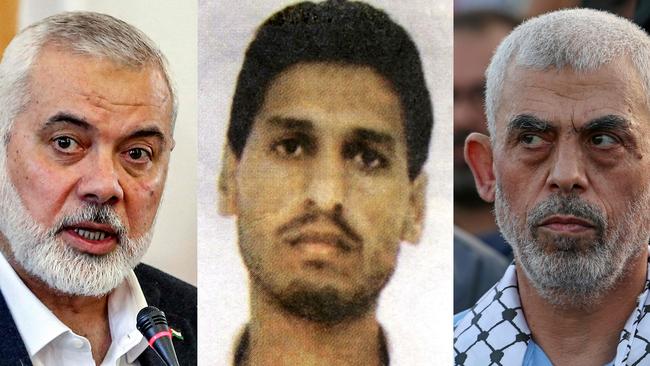
Khan dismissed as “nonsense” suggestions that he was trying to establish moral equivalence with the charges.
“I am not saying that Israel with its democracy and its supreme court is akin to Hamas, of course not. I couldn’t be clearer, Israel has every right to protect its population and to get the hostages back. But nobody has a licence to commit war crimes or crimes against humanity. The means define us.”
When asked recently by a senior official what Israel could do given that it didn’t know where the hostages were, in tunnels or houses, or how they were being kept, he said he gave the example of Britain during the IRA.
“There were attempts to kill Margaret Thatcher, Airey Neave was blown up, Lord Mountbatten was blown up, there was the Enniskillen attack, we had kneecappings ... But the British didn’t decide to say, ‘Well, on the Falls Road [the heart of Catholic Belfast] there undoubtedly may be some IRA members and Republican sympathisers, so therefore let’s drop a 2,000lb bomb on the Falls Road.’ You can’t do that. Law must have some purpose, that’s what separates states that respect the law from criminal groups and terrorists. And that’s all I have been trying to do, apply law based on facts, and that’s what we must do whatever condemnation we get.”
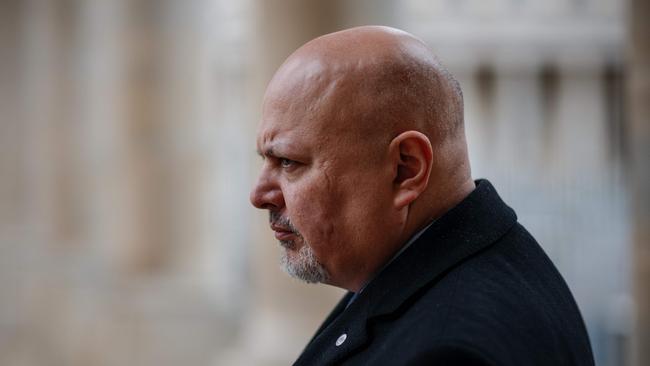
He said he did not understand the shock at his announcement, given the continued failure of Hamas to return the hostages and of Israel to allow aid into Gaza. “I’ve been saying continuously since October 7, ‘Comply now, don’t complain later.’ I said it in Rafah when I wasn’t allowed in by Israel. I said it in Cairo, said it in public statements and said it directly to the Israelis and Palestinians. So I just don’t know why anyone is surprised.”
By Friday morning when he spoke to me for 80 minutes from his office in The Hague, Khan, 54, was looking exhausted. “Every day one gets emails, other types of threats and pressure, direct and otherwise,” he said. But as someone who last year also took on President Putin, calling for his arrest for war crimes in Ukraine including the abduction of children, he is not easily deterred.
Born in Edinburgh to a British mother and Pakistani father, Khan grew up in Yorkshire where his father worked as a consultant dermatologist. He attended Silcoates School, a private school in West Yorkshire. A Muslim, Khan is part of the Ahmadiyya sect which is persecuted in Pakistan where its people were declared non-Muslims and forbidden from practising. “I’ve had family members killed, shot in Lahore when mosques were attacked,” he said. In 1989, while he was studying law at King’s College London, that violence came home. “My father, my mother, my younger brother and my cousin, who is a doctor, were all attacked,” he said.
“They were having an interfaith event at Batley town hall and mullahs came from Pakistan and attacked. They knocked my cousin unconscious, hit my father and mother, and when the police took them into the station next door, a mullah stood on an ambulance and said we will burn down the police station unless you release our people. After that a bounty, a fatwa, was put on my father’s head and I remember in our laundry room there was a box which was a panic alarm. It wasn’t really publicised, it was viewed as a problem of race relations.”
His brother Imran Ahmed Khan went on to serve as Tory MP for Wakefield from 2019 until he was forced to step down in 2022 and jailed for 18 months for sexually assaulting a 15-year-old boy at a party.
Khan had by then built a career at the Crown Prosecution Service then at the International Criminal Tribunal for the Former Yugoslavia. From there he worked his way up in special courts in The Hague, initially establishing his reputation as a defence lawyer. He acted for alleged war criminals including the Liberian warlord Charles Taylor (though he walked away from the case) and Fatmir Limaj, commander of the Kosovo Liberation Army who was acquitted. He also represented William Ruto, now president of Kenya, who was accused of orchestrating violence that killed more than 1,300 people (the case was abandoned).
When he stood for the position of chief prosecutor in 2021, the UK initially declined to back him. On the wall of his office in The Hague is a framed letter from then justice secretary Dominic Raab refusing his request for support. The UK government changed its mind once it was clear he had unanimous backing.
When he took office two and a half years ago, he pledged reform, particularly focusing on crimes against children and sexual violence, as well as extending the court’s geographic focus. Historically the ICC had a reputation for only going after African dictators and warlords and even then not very effectively - securing only ten convictions in its 22 years of existence despite running up a bill of nearly dollars 10 billion. Khan has sought to expand its reach.
“We currently have active investigations in the Philippines, in Afghanistan, in Myanmar and Bangladesh and in Latin America and in Georgia, Ukraine and Palestine,” he said. “We may not be perfect but we are sincere and guided by evidence not extraneous factors such as political convenience.”
His focus switched to Gaza shortly after October 7 - both for the killings of 1,200 Israelis by Hamas and abduction of about 340 people, but also Israel’s subsequent response. That included both the military operation itself and what Gallant said in October would be a “complete siege” with “no electricity, no food, no water, no gas” getting through.
Khan cited the subsequent “number of bakeries targeted ... the fact that water was turned off, water purification tablets not allowed in, desalination plants not allowed membranes, wells targeted, the fact that people queuing for food [were] targeted, that people from aid agencies have been killed. “It’s the whole pattern that’s indicative. We’ve analysed it objectively and rationally,” he said.
Israel claims that ample aid has been allowed through to Gaza but has then been seized by Hamas. A new working paper published last week by Israeli public health officials and academics found that food delivered to Gaza by thousands of aid trucks in the first four months of the year provided a daily per person calorie intake that was 40 per cent higher than the minimum daily amount required during a crisis.
Khan said: “Look what all major relief agencies say, what we are seeing of emaciated children. Even if we don’t trust Palestinian doctors, we have American and British doctors speaking of conducting amputations without anaesthetics, of babies dying in incubators because the power is turned off, of people dying because there is no insulin.”
“This is not how war is supposed to be waged,” he added. “If this is what compliance with international humanitarian law looks like, then the Geneva Conventions serve no purpose.”
To compile its charges his team gathered “a variety of evidence - we have witnesses, doctors who have been there conducting operations, the extent of diarrhoea because of lack of water. Satellite evidence, videos that have been authenticated, statements from Israeli soldiers and officials.”
Because the issue is so polarising he brought in human rights lawyers and experts in international law to make their own report including Amal Clooney, Baroness Kennedy KC, Lord Justice Sir Adrian Fulford, Elizabeth Wilmshurst KC, Danny Friedman KC, and Theodor Meron, an American-Israeli lawyer and judge. “These are great lawyers I respect hugely who have stood up for principle throughout their life,” he said.
He particularly cited Wilmshurst, who resigned over the war in Iraq, as well as Meron - “a giant of intellect, an Israeli Jew who was legal adviser to Israel and a Holocaust survivor - are they going to call him antisemitic? The fact they have been unanimous that evidence is there is very important.”
Khan acknowledges that civilian casualties are an unfortunate reality of armed conflict, particularly in urban areas, but adds: “It’s another thing for civilians to be deliberately targeted. You can’t have as a common plan collective punishment. It’s absolutely legitimate for Israel to have the objective to defeat Hamas and to get hostages out, I support that. But the way you engage must be compliant with law.”
While criticism from UK and US has been fierce, his decision has drawn support from France, Belgium, Ireland and - tentatively - from Germany, as well as from the shadow foreign secretary David Lammy in parliament.
“It’s a precarious moment internationally and if we don’t hold onto the law, we have nothing to cling onto,” Khan said. “Those profound words ‘Never Again’ are too often becoming ritual incantations and we are reaching a point where people round the world are not buying it.”
The Sunday Times




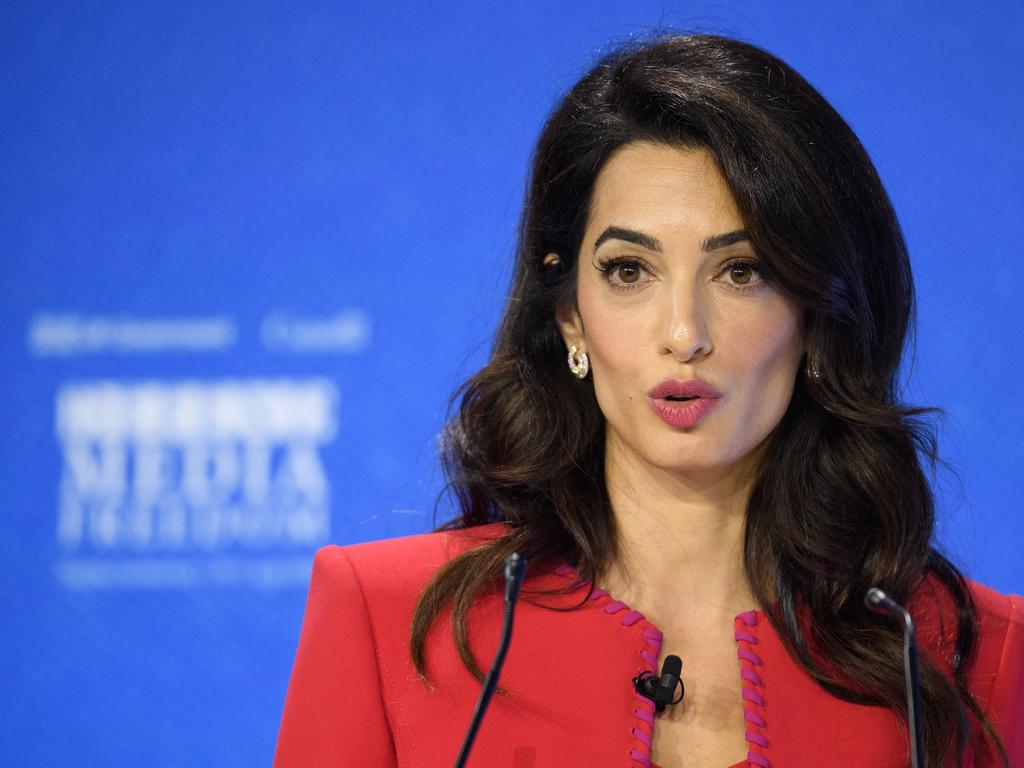
To join the conversation, please log in. Don't have an account? Register
Join the conversation, you are commenting as Logout